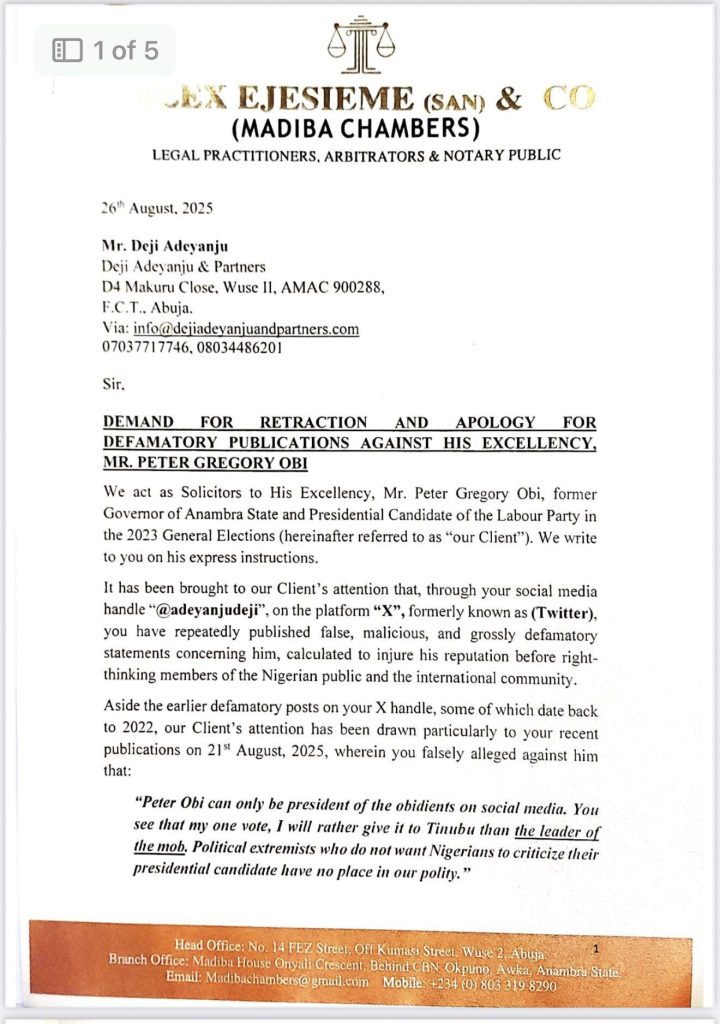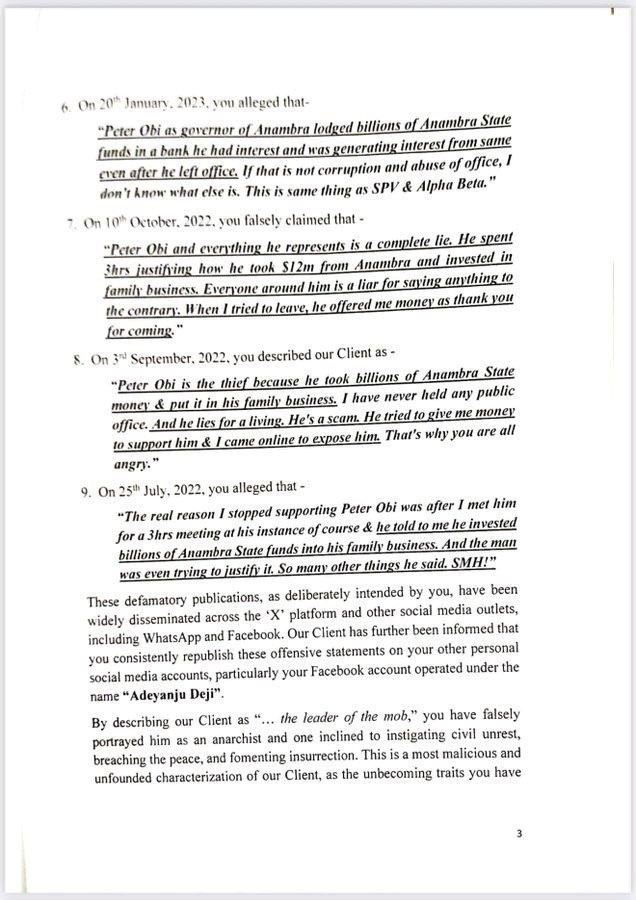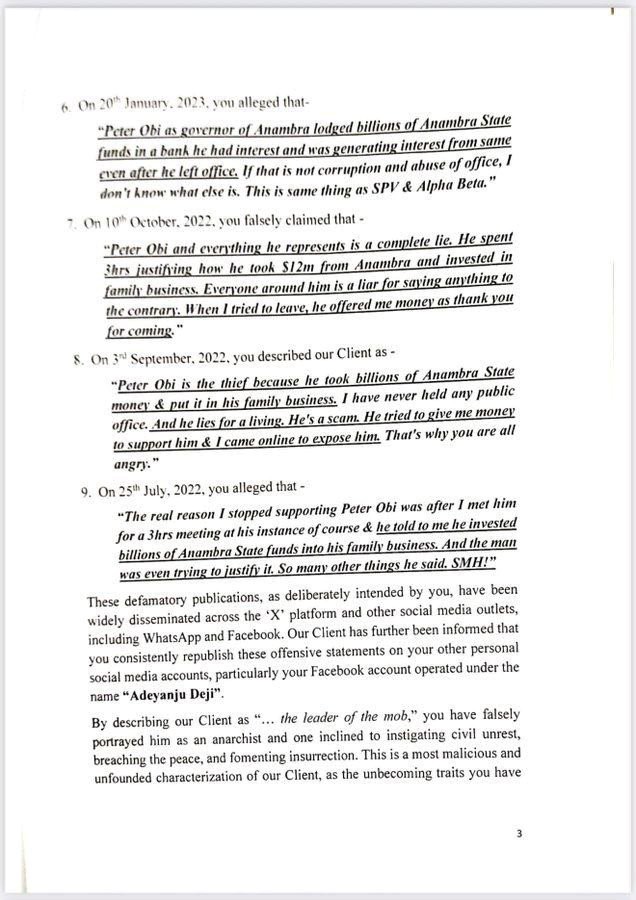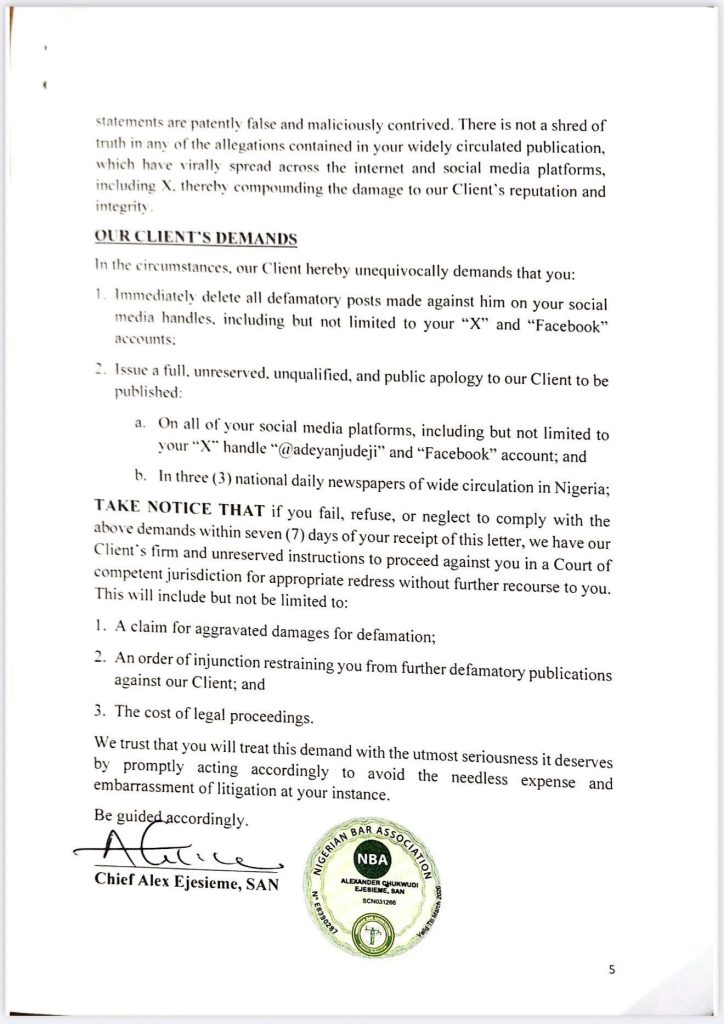Presidential candidate of the Labour Party (LP) in the 2023 general elections, Peter Obi, has initiated legal action against political activist Deji Adeyanju over a series of alleged defamatory publications shared on social media.
Through his lawyer, Alex Ejesieme (SAN), Obi accused Adeyanju of persistently spreading false, malicious, and damaging statements on X (formerly Twitter), Facebook, and other platforms. The legal team argued that the activist’s remarks were deliberately crafted to tarnish Obi’s reputation both within Nigeria and across the international community.
ALSO READ: One Killed, Another Rescued as Foundation Wall Collapses
Allegations Against Peter Obi
The legal notice highlighted multiple claims made by Adeyanju, which Obi’s lawyers described as baseless. Some of the accusations include:
Diverting public funds from Anambra State into family-owned businesses.
Attempting to bribe Adeyanju during a private meeting.
Using religion to manipulate voters in the 2023 presidential elections.
Portraying Obi as the “leader of a mob” and referring to him as “a scum.”
Obi’s legal team described these allegations as “false, malicious, and contrived,” insisting they were calculated attempts to misrepresent him as corrupt, divisive, and unfit for leadership.




Legal Demands to Adeyanju
In the letter of demand, Obi’s counsel directed Adeyanju to take immediate corrective actions, including:
- Deleting all defamatory posts from his social media accounts.
- Publishing a public apology across his social media handles.
- Issuing a formal apology in three national newspapers.
The notice further warned that if Adeyanju failed to comply within seven days, Obi would proceed with a lawsuit seeking:
Aggravated damages for reputational harm.
Recovery of legal costs incurred.
Restraining injunctions to prevent further defamatory publications.
Defamation in Nigeria: Legal Background
Defamation is a serious civil offense in Nigeria, covered under both the Criminal Code Act (for libel and slander) and various judicial precedents. Nigerian law considers any statement that unjustly harms another’s reputation as actionable, especially when published to a wide audience.
In recent years, the rise of social media has blurred the lines between free speech and defamation. Politicians, celebrities, and public figures have increasingly resorted to litigation to counter what they describe as character assassination online.
Legal experts note that while freedom of expression is guaranteed under Section 39 of the Nigerian Constitution, it does not protect malicious falsehoods intended to harm another’s reputation. If Obi proceeds to court, this case could become a defining legal battle on digital defamation in Nigerian politics.
Political and Social Implications
Peter Obi, who emerged as a major contender in the 2023 elections, has cultivated a reputation as a reformist leader. His legal move against Adeyanju underscores the growing tension between politicians and activists in Nigeria’s digital space, where political debates often spill into personal attacks.
Observers believe this case could serve as a litmus test for accountability in online discourse, raising critical questions:
Where is the line between political criticism and defamation?
How should courts balance free speech with reputation rights in the digital era?
Will this lawsuit deter activists from making unverified allegations online?


![Peter Obi Sues Deji Adeyanju Over Defamation Allegations on Social Media [PHOTOS]](https://nationscuriosity.com/wp-content/uploads/2025/08/operanews1756330176090-750x375.jpg)